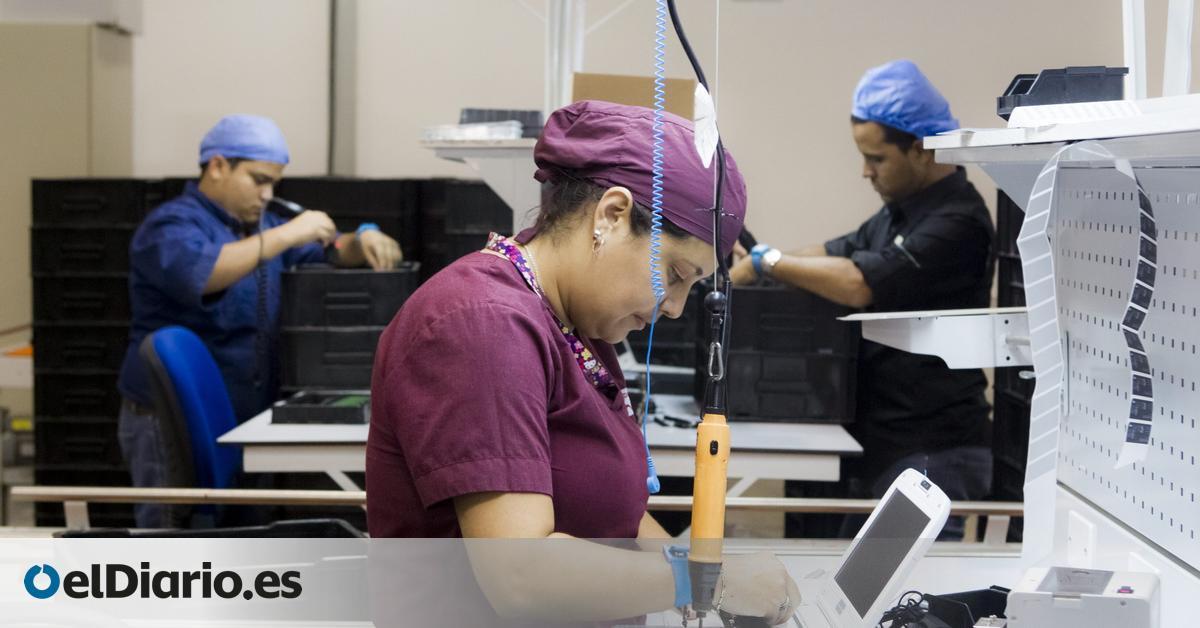
Equality plans in companies are advancing, but they continue to face a wide level of non-compliance. More than half of the obligated companies have not yet implemented them. In the last three years, with the extension of this obligation to all companies with 50 workers or more, the Labor Inspectorate has imposed fines amounting to “more than 3.7 million euros” for non-compliance, with a total of 1,665 infractions, according to sources from the Ministry of Labor. As of September, a new impetus is expected for this measure, since it was incorporated as a requirement of the new aid for hiring.
The Ministry led by Vice President Yolanda Díaz, now in office, highlights that “the Labor and Social Security Inspectorate counts among its priorities actions related to equality and non-discrimination in the workplace and access to employment.” As an example, he underlines the creation this summer of the Office for the Fight against Discrimination in the watchdog body for labor law.
In 2019, the Government multiplied by five the mandate to incorporate these plans in favor of equality and against discrimination in the workplace. Since 2007, companies with more than 250 workers had to implement it, slightly less than 5,000 companies. The Executive extended the obligation to all those with 50 or more employees, which added up to 25,000 more, who should implement them between 2020 and 2022. In addition, it was forced to register the plans publicly, which facilitated the control of compliance with the extent.
770,000 euros in sanctions this year
In recent years, the Labor Inspectorate has reinforced monitoring of compliance with equality plans and sanctions have also skyrocketed, especially last year, given the high number of breaches detected. In 2021, the first year of a certain normality after the pandemic, the fines reached just over 324,700 euros, while in 2022 they multiplied by eight, reaching 2.5 million, they indicate in Labor. The Inspectorate’s investigations had increased that year, but not by that much: they had more than doubled.
So far in 2023, between January and July, the infractions detected total 773,209 euros, even with provisional data that is expected to increase “because the surveillance and control mechanisms are going to be strengthened,” they indicate in Labor. At the moment, far fewer actions have been carried out than last year, 1,800 until July, compared to almost 4,800 investigations in 2022.
Although there are no exact figures, it is estimated that more than half of the companies required to have an equality plan – possibly around 60-70% – do not currently comply with the law.
Failure to comply with this obligation is classified as a serious infraction of labor relations, which can be sanctioned with fines from 751 to 7,500 euros. In addition, if the requirement is based on a mandate from the Labor Inspectorate, it is considered a very serious infraction. In this case, the fines can reach up to 225,018 euros in their maximum degree.
According to Social Security data, there are some 32,700 companies registered with 50 or more employees and the public registry of collective agreements (REGCON) only includes 11,590 equality plans in force as of August 10. Assuming that all the plans correspond to companies obliged to have these plans, we would be talking about a compliance of 35% of the companies. But is not the case.
Among the registered plans, there are also those of companies not obliged to apply the measure, which have smaller workforces, but which carry out an equality plan “to get more points in public service tenders”, recalls Cristina Antoñanzas, general deputy secretary of UGT and head of Equality in the union.
Many plans under negotiation and new aid
Even with the delay of thousands of companies, Begoña Marugán, from the CCOO Women’s Secretariat, highlights the progress made in recent years. Although companies with 250 workers or more had to have this tool since 2007, she Marugán maintains that “many did not have it, they were a minority.” According to union data, around “6%” in 2019. Until the end of that year there were only 500 plans registered in REGCON, although then there was no obligation for companies to register them.
In CCOO they believe that the extension of these plans is one of the “best policies” in terms of labor equality at a European level. And they point out that, after its approval, thousands of companies and millions of workers have come to be covered by this tool to detect inequalities and provide measures to solve them.
From the employers, the unions have been pointed out on several occasions as responsible for the delay in the extension of this measure, which must be negotiated with the working party, for “not being able to cope” with the number of plans that the norm opened up. The unions reject this thesis outright. In CCOO they underline the existence of a high number of open plan negotiation tables. “At the end of 2022 and the beginning of this, there were some 2,500 tables”, figure Begoña Marugán.
“Although not always”, the largest sources of non-compliance are located in smaller companies, indicates Antoñanzas, from UGT. These companies have smaller human resources services with less capacity to analyze the large volume of data necessary to make a good diagnosis of internal equality in the company. Also those without representation of the staff, with more “resistance” to give data to the negotiators who come from the majority unions.
The CCOO and the UGT warn that an equality plan “requires a lot of time”, first to analyze the situation and then design the measures to improve labor equality, while some companies arrive very late to comply with the law, without the willingness to negotiate and to “try to comply with the process”.
The next entry into force of the incentives law, the new aid for hiring for companies, will give a further boost to the plans, the unions estimate. The norm establishes this measure as a requirement to be able to collect the aid. Although the deployment of the regulation will take place on September 1, the Government is studying the application of this criterion progressively, according to union sources.
————————————–
How to stop the lies
The 23J campaign has made clear the tremendous importance of the free press, which depends on its readers and owes nothing to anyone else. The vast majority of the big media are owned by banks, funds and large communication groups. The vast majority of them have whitewashed the ultras and are under the control of the agenda set by the right.
That is why we ask for your support. We need to grow. Hire more journalists. Reinforce our local editions against the lies of the local and regional governments of the extreme right. Sign more investigative reporters. We need to reach more people, build a bigger newspaper, capable of countering the brutal wave of conservative propaganda that we are going to face. And that will leave small what we have experienced in this dirty electoral campaign.
If you care about the future of this country, support us. Today we need you more than ever because our work is more necessary than ever. Become a member, become a member, of elDiario.es.
Source: www.eldiario.es

